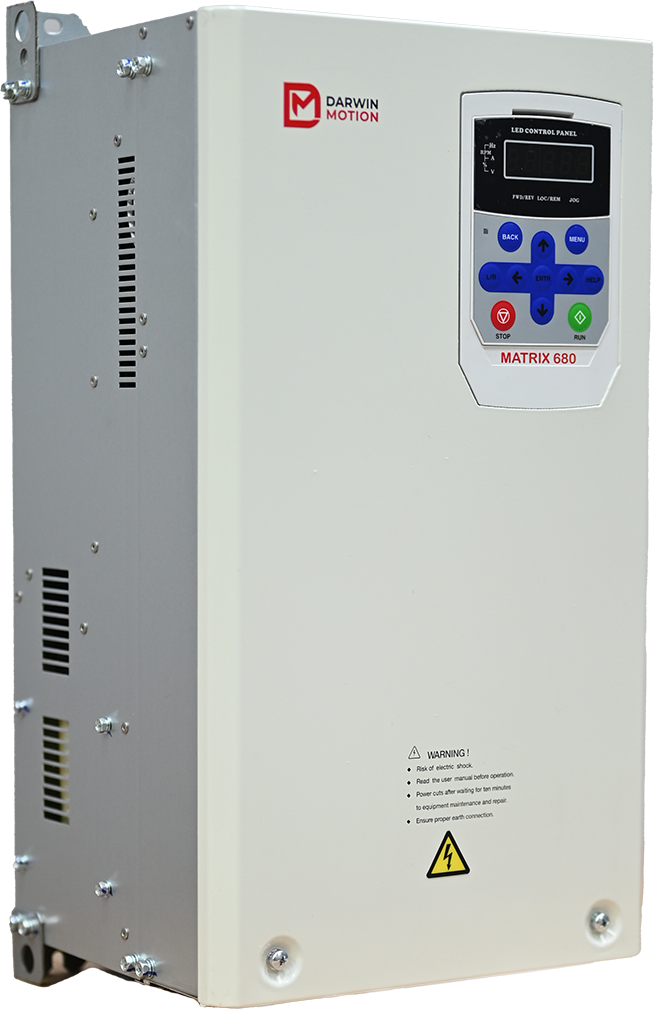Posted on 13th Jul 2024

In the realm of industrial and commercial applications, variable speed drive motors represent a cornerstone of efficiency and precision. These motors, also known as adjustable speed drives (ASDs) or variable frequency drives (VFDs), offer unparalleled flexibility by allowing precise control over motor speed and torque. This capability not only optimizes energy consumption but also enhances performance across a wide range of operations. Let’s delve into the workings, benefits, and diverse applications of variable speed drive motors.
At its essence, a variable speed drive motor enables the adjustment of motor speed to match specific process requirements. Traditional motors operate at fixed speeds determined by the frequency of the power supply (typically 50 or 60 Hz). In contrast, variable speed drive motors incorporate sophisticated electronics that modify the frequency and voltage supplied to the motor, thereby altering its speed dynamically.
Inverter or Drive Controller: The heart of a variable speed drive system is the inverter or drive controller. This device converts the incoming AC power from the mains supply into DC power and then generates AC power again at variable frequencies and voltages suitable for controlling motor speed.
Electric Motor: Variable speed drive motors are typically asynchronous induction motors (AC motors). These motors are robust and reliable, suitable for a wide range of industrial applications.
Control Interface: Modern servo drive come equipped with user-friendly interfaces for setting and adjusting parameters such as motor speed, acceleration, and deceleration profiles. This interface allows operators to fine-tune motor performance according to specific operational requirements.
Energy Efficiency: By adjusting motor speed to match the exact load requirements, variable speed drive motors reduce energy consumption significantly compared to fixed-speed motors. This efficiency gain translates into lower operating costs and reduced carbon footprint.
Improved Process Control: Precise speed and torque control enable better process optimization, leading to improved product quality, reduced waste, and enhanced operational reliability.
Extended Equipment Lifespan: Soft-start capabilities of variable speed drives reduce mechanical stress on motors and associated equipment, thereby extending their lifespan and reducing maintenance costs.
Variable speed drive motors find widespread application across various sectors:
Industrial Manufacturing: Used in conveyor systems, pumps, fans, compressors, and extruders to regulate flow rates, pressure, and temperature.
HVAC Systems: Variable speed drives control the speed of motors driving air handlers, pumps, and chillers, optimizing energy use in heating, ventilation, and air conditioning systems.
Renewable Energy: Variable speed drives play a crucial role in wind turbines and solar photovoltaic systems, ensuring efficient energy conversion and grid integration.
Transportation: Electric vehicles utilize variable speed drive motors to optimize motor efficiency and extend battery life.
As technology advances, the capabilities of variable speed drive motors continue to evolve. Key areas of innovation include:
Integration with IoT: Connecting Darwin Motion variable speed drives to the Internet of Things (IoT) enables remote monitoring, predictive maintenance, and data-driven insights for further optimization.
Energy Storage Integration: Combining variable speed drive technology with energy storage systems enhances grid stability and supports renewable energy integration.
Enhanced Control Algorithms: Advanced algorithms improve motor efficiency and performance under varying load conditions, further enhancing energy savings and operational reliability.
Darwin Motion Variable speed drive motors represent a cornerstone of modern industrial and commercial applications, offering unparalleled flexibility, energy efficiency, and precise control over motor operations. As industries strive towards sustainability and operational excellence, the adoption of variable speed drive motors continues to grow, driving innovation and transforming how we approach energy consumption and process optimization.
In essence, the evolution of variable speed drive motors underscores a commitment to efficiency, sustainability, and technological advancement in the industrial landscape.